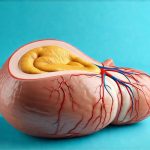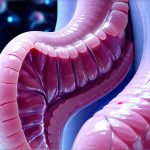Panic attacks are terrifying experiences characterized by sudden intense fear that can trigger severe physical reactions. Many people associate them solely with psychological factors – trauma, stress, anxiety disorders – and while these certainly play a significant role, emerging research is revealing a more complex picture. Increasingly, the connection between our gut health and mental wellbeing, often referred to as the gut-brain axis, is being recognized as a potentially crucial factor in understanding and even addressing panic attacks. This isn’t about blaming your stomach for your anxiety; it’s about acknowledging the intricate two-way communication system between your digestive system and your brain, and how disruptions within that system can contribute to feelings of intense fear and physiological distress.
The traditional view of mental health often overlooks the physical foundations of emotional states. We tend to focus on thoughts and feelings, sometimes neglecting the powerful influence of the body itself. However, the gut is far more than just a digestive organ; it’s home to trillions of microorganisms – bacteria, fungi, viruses – collectively known as the gut microbiome. This microbiome isn’t merely present in our bodies; it actively participates in regulating various physiological processes, including immune function, nutrient absorption, and, importantly, brain health. A dysbiotic gut – one with an imbalance of these microorganisms – can trigger inflammatory responses and altered neurotransmitter production that may contribute to anxiety and panic symptoms. Understanding this connection is paramount for a more holistic approach to mental wellbeing.
The Gut-Brain Axis: A Two-Way Street
The gut-brain axis isn’t a single pathway, but rather a complex network involving neural, hormonal, and immunological signaling. Think of it as a constant conversation happening between your digestive system and your brain. – The vagus nerve is a major component, acting as a direct line of communication, transmitting signals in both directions. – Short-chain fatty acids (SCFAs), produced by gut bacteria during the fermentation of dietary fiber, influence brain function and mood regulation. – Immune cells present in the gut can release cytokines – signaling molecules that impact brain activity. Disruptions to any part of this axis can have significant consequences for mental health.
A compromised gut microbiome, often resulting from factors like poor diet, chronic stress, antibiotic use, or environmental toxins, can lead to increased intestinal permeability (often called “leaky gut”). This means the barrier between your digestive tract and bloodstream becomes more porous, allowing undigested food particles, bacteria, and toxins to enter the circulation. This triggers an immune response and systemic inflammation which has been linked to various mental health conditions, including anxiety and panic disorder. Inflammation isn’t just a physical process; it impacts brain function directly, influencing neurotransmitter production and potentially exacerbating feelings of fear and worry.
Furthermore, the gut microbiome is heavily involved in the production of key neurotransmitters like serotonin (often called the “happy hormone”), dopamine, and GABA – all crucial for mood regulation. Approximately 90% of serotonin is produced in the gut! A dysbiotic gut can therefore lead to imbalances in these neurotransmitters, contributing to anxiety, depression, and panic attacks. It’s a vicious cycle: stress can negatively impact the microbiome, which in turn exacerbates anxiety, creating further stress and worsening the imbalance. Recognizing this interplay is essential for developing effective strategies for managing panic disorder.
Identifying Potential Gut Sensitivities
Determining whether gut sensitivities are contributing to your panic attacks isn’t always straightforward. It requires careful consideration of various factors and potentially collaboration with healthcare professionals. However, there are several telltale signs that might suggest a connection: – Frequent digestive issues like bloating, gas, diarrhea, or constipation. – Food intolerances or sensitivities, even if not formally diagnosed. – History of antibiotic use. – Chronic stress or trauma. – Family history of autoimmune diseases or gut disorders. – Symptoms worsening after eating specific foods.
A food elimination diet can be a helpful starting point for identifying potential triggers. This involves removing common allergenic and inflammatory foods (like gluten, dairy, soy, corn, sugar) from your diet for a period of time and then gradually reintroducing them one at a time to observe any reactions. It’s crucial to do this under the guidance of a registered dietitian or healthcare provider to ensure you’re still receiving adequate nutrition. Another option is stool testing, which can provide insights into the composition of your gut microbiome, identifying imbalances and potential deficiencies. However, it’s important to note that stool tests aren’t always definitive and should be interpreted in conjunction with other clinical information.
Beyond dietary factors, addressing chronic stress is vital for gut health. Stress hormones like cortisol can disrupt the microbiome, increasing intestinal permeability and inflammation. Implementing stress management techniques such as mindfulness, meditation, yoga, deep breathing exercises, or spending time in nature can significantly improve both gut health and mental wellbeing. Consider keeping a journal to track your symptoms – both physical (digestive issues) and emotional (panic attacks) – alongside dietary intake and stress levels. This can help you identify patterns and potential triggers.
Supporting Gut Health for Panic Management
Once potential gut sensitivities are identified, the focus shifts to supporting gut health through various strategies. Probiotics – live microorganisms that benefit the host when consumed – can help restore balance to the microbiome. However, it’s important to choose a probiotic strain that is appropriate for your specific needs and consult with a healthcare professional before starting supplementation. Different strains have different effects, and what works for one person may not work for another.
Prebiotics, on the other hand, are non-digestible fibers that feed beneficial bacteria in the gut. Good sources of prebiotics include garlic, onions, leeks, asparagus, bananas, and oats. Incorporating prebiotic-rich foods into your diet can help nourish your existing microbiome and promote its growth. Fiber intake is generally a key component of a healthy gut.
Beyond probiotics and prebiotics, a whole-food, anti-inflammatory diet is crucial. This means prioritizing fruits, vegetables, lean protein, and healthy fats while minimizing processed foods, sugar, and refined carbohydrates. Consider incorporating fermented foods like sauerkraut, kimchi, yogurt (if tolerated), and kefir into your diet – these are naturally rich in probiotics. Hydration is also essential, as it helps maintain a healthy digestive system. Ultimately, the goal is to create an environment within your gut that supports microbial diversity and reduces inflammation.
The Importance of Holistic Approach
It’s vital to emphasize that addressing gut sensitivities is rarely a standalone solution for panic attacks. It’s one piece of a larger puzzle. Panic disorder often involves complex psychological factors, past trauma, learned behaviors, and genetic predispositions. Therefore, a holistic approach that integrates both physical and mental health strategies is essential. This may involve: – Psychotherapy (such as cognitive behavioral therapy or CBT) to address underlying anxiety triggers. – Mindfulness-based practices to cultivate present moment awareness and reduce stress. – Medication, if prescribed by a healthcare professional.
Working with a multidisciplinary team – including a therapist, registered dietitian, gastroenterologist, and potentially a functional medicine practitioner – can provide comprehensive support. They can help you identify the root causes of your panic attacks, develop personalized strategies for gut health and mental wellbeing, and monitor your progress. Don’t fall into the trap of seeking quick fixes or relying solely on supplements; lasting change requires a sustained commitment to lifestyle modifications and addressing both the physical and emotional components of panic disorder. Finding power in small choices can make all the difference, even when facing challenges. It’s important to remember that compassion practices are essential during difficult times and taking time for rest is remedy. If you suspect a connection to acid reflux, it’s important to determine acid reflux cause and seek appropriate care. And for those with children, build resilience is a long term investment. Finally, remember to address long term instability.
Finally, remember that you are not alone. Many people experience panic attacks, and there is help available. Seeking support from loved ones, joining a support group, and prioritizing self-care are all important steps on the path to recovery. The emerging understanding of the gut-brain connection offers hope for more effective and holistic approaches to managing panic disorder, but it requires a willingness to explore beyond traditional mental health paradigms and embrace the interconnectedness of mind and body. Making space for healing is often the first step toward lasting wellbeing.


















